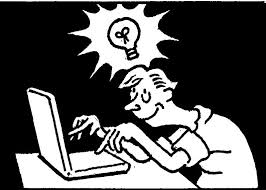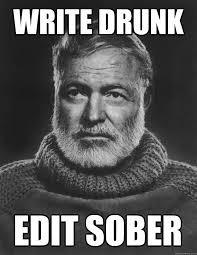
|
| |||||||||||||||||||||||||||||||||||||||||||||||||||||||||||||||||||||||||
|
|||||||||||||||||||||||||||||||||||||||||||||||||||||||||||||||||||||||||
|
| |||||||||||||||||||||||||||||||||||||||||||||||||||||||||||||||||||||||||
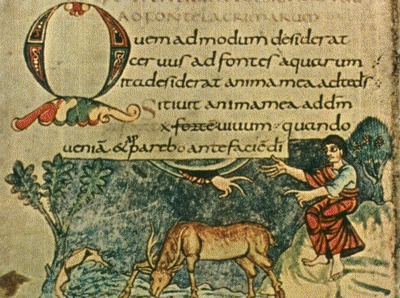
Welcome to the
World of Creative Writing
| |||||||||||||||||||||||||||||||||||||||||||||||||||||||||||||||||||||||||
|
Send the Muse Of Literature Your original Poem
Have you written an original poem? Do you want to write a new one for publication? In collaboration with Electricka, The Muse Of Literature invites you to submit your original poem for publication at Electricka's web site.
Join the ranks of the likes of Wordsworth, Byron, Coleridge, Keats, Shelley, Eliot, Frost, Plath, Dickenson, Stevens, Rothke, Duffy, Angelou, and hundreds of other published poets.
-
Everyone is invited to publish their poetic creations. Find out how at The Poetry Corner. When at The Poetry Corner, be sure to see the guidelines for contributing a poem: click here.
To encourage you to write and submit your own original essay on this subject, The Muse has declared this feature a ByLine feature.
- For more information about this and other ByLine Features, visit the ByLine page at this web site: click here. Click the ByLine logo in the right margin of this page.
Want to learn more about poetry at Electricka's web site?
- Visit The Muse Of Literature feature titled Welcome To the World Of Poetry: click here.
Publish Your Essay or other expository prose work
Have you previously written an essay or another kind of expository prose work? Want to write one especially for publication at Electricka's web site? The Muse Of Language Arts invites to submit your original work now.
Join the ranks of the likes of essayists like Charles Lamb, Ralph Waldo Emerson, Thomas Carlyle, and thousands of others who have written and published their prose nonfiction works. Publish your essay here.
Or publish any other kind of expository prose work you've written here, not just your essay.
- Find out how to publish your essay or other kind of expository prose work now. Visit The Muse Of Language Arts feature titled Publish Your Essay. Whatever the type of expository prose work you've written, publish it here: tap or click here.
Essays are just one of many different kinds of expository prose works that appear in the Publish Your Essay feature.
- Want to explore the nature of the essay and of expository prose generally? Visit The Muse Of Literature feature titled Expository Prose And The Essay: tap or click here.
- Want to explore aspects of prose writing that help writers and readers understand and write expository prose? Visit The Muse Of Literature's feature titled Welcome To Expository Prose Writing: tap or click here.
Read original essays and other kinds of expository prose works written by electricka's visitors
The works at this feature are essays and other kinds of expository prose works written by Electricka's visitors.
- Read them now at The Muse Of Language Arts feature titled Publish Your Essay: tap or click here.
Essays are just one of many different kinds of expository prose works.
- Want to explore the nature of the essay and of expository prose generally? Visit The Muse Of Literature feature titled Expository Prose And The Essay: tap or click here.
publish your Original essay on the subject why write?
Have you written an original essay on the subject of Why Write? Would you like to write one for publication at Electricka's web site?
The Muse Of Language Arts and The Muse Of Literature jointly invite you to write and submit an essay on the subject of why write. They urge you to write and publish your essay no matter where the nature of your writing interest lies. Your work doesn't have to be a masterpiece. You don't have to be a professional writer or be previously published and you don't have to have studied writing.
Join the ranks of the likes of Charles Lamb, Ralph Waldo Emerson, Thomas Carlyle, and thousands of others who have written and published their original essays.
- Your essay will be published at The Muse Of Language Arts feature called Publish Your Essay. Visit this feature now: tap or click here.
publish your Original essay on the subject why Read?
Have you already written an essay on why read? Want to write an original essay on why read especially for publication at Electricka's web site? Either way, The Muse Of Language Arts invites you to publish your essay on the subject why read at Electricka's web site for other visitors to see.
Why read? There are a zillion reasons. Want to offer visitors some of your own? Feel free to compare or contrast your viewpoint and experiences with those of the ETAF essayist, or take your essay in new directions. Show others the rewards and penalties of of being a reader. Explore and expound on some of the zillion other topics about reading that apply to you or others, as you see them.
When your essay is published, you and other visitors will be able to find and read it in the Publish Your Essay feature. Its title and subject will appear. The name of its author will appear there too, if you choose, and you'll get the credit you deserve.
- Find out how to publish your essay on the subject why read at The Muse Of Literature's page titled Publish Your Essay. Visit the feature called Publish Your Essay now: tap or click here.
Aids for Readers
The Muse Of Literature is pleased to offer visitors the reading aids you'll find at this feature: tap or click here.
writing aids for writers and authors
The Muses are pleased to offer writers and authors a list of writer's aids located at this web site. Some items on the list serve as references; they are information sources for writers of all kinds that may assist them while they are writing. Other items may help writers hone and polish their skills.
- For more information about the purpose of this feature, visit The Muse Of Language Arts page titled Writing Aids For Writers And Authors: tap or click here.
Technical Aspects Of Literature
The technical aspects of any written work are its properties and techniques as seen from a literary and language perspective.
All writing incorporates and is made up of technical elements like meter, form, sound (rhyme), and figures of speech. Techniques and language elements like these are common to all fields of writing; all writers use them, deliberately or subconsciously. Any particular work can by analyzed, understood, described, and classified by the combination of the writing elements it incorporates.
In this feature, The Muse Of Literature explores writing and writings from a technical and design point of view—structure, organization, tone, style, language constructions, and all the other technical aspects that make for coherent, expressive, and effective writing, or its opposite.
- Explore The Muse Of Literature's feature called Technical Aspects of Literature: tap or click here.
professional writing and documentation services
Want topflight professional writing or documentation services at a reasonable cost?
- For more information: tap or click here.
|
|
Search this web site with Electricka's Search Tool:
tap or click here
Electricka's Theme Products
Shop At Cafe Press
This web site and
its contents are copyrighted by
Decision Consulting Incorporated (DCI).
All rights reserved.
Contact Us
Print This Page
Add
This Page To Your Favorites (type <Ctrl> D)


You may reproduce this page for your personal
use or for non-commercial distribution. All copies must include this
copyright statement.
—Additional
copyright and trademark notices—
| Exploring the Arts Foundation |
 |
| Today's Special Feature |
| Search Now |
| To Do |
| Our Blogs |
| Our Forums | ||
|
|
Resource Shelf |
| Related Pages | |||||||||||||||
|
| See Also |
| Writing Right |
| ETAF-Amazon |
|
|

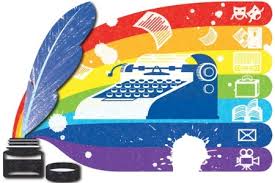
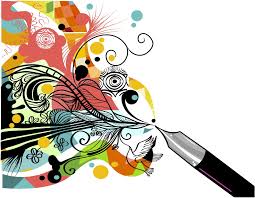 For
an example of this generality and imprecision, consider the following: To keep their discussions simple, many literati—those who specialize in literary subjects—equate creative writing with nonfiction writing.
According to them, if it's creative writing, it's fiction, and if it's nonfiction, it's not
creative writing. They exclude nonfiction writing from the field of creative
literature.
For
an example of this generality and imprecision, consider the following: To keep their discussions simple, many literati—those who specialize in literary subjects—equate creative writing with nonfiction writing.
According to them, if it's creative writing, it's fiction, and if it's nonfiction, it's not
creative writing. They exclude nonfiction writing from the field of creative
literature.